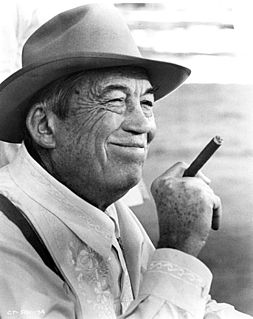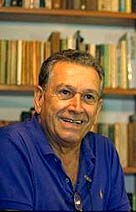A Quote by Robin G. Collingwood
If an artist may say nothing except what he has invented by his own sole efforts, it stands to reason he will be poor in ideas. If he could take what he wants wherever he could find it, as Euripides and Dante and Michelangelo and Shakespeare and Bach were free, his larder would always be full, and his cookery might be worth tasting.
Related Quotes
Non-injuring has to be attained by him who would be free. No one is more powerful than he who has attained perfect non-injuring. No one could fight, no one could quarrel, in his presence. Yes, his very presence, and nothing else, means peace, means love wherever he may be. Nobody could be angry or fight in his presence. Even the animals, ferocious animals, would be peaceful before him.
But he could not taste, he could not feel. In the teashop among the tables and the chattering waiters the appalling fear came over him- he could not feel. He could reason; he could read, Dante for example, quite easily…he could add up his bill; his brain was perfect; it must be the fault of the world then- that he could not feel.
Who stands firm? Only the one for whom the final standard is not his reason, his principles, his conscience, his freedom, his virtue, but who is ready to sacrifice all these, when in faith and sole allegiance to God he is called to obedient and responsible action: the responsible person, whose life will be nothing but an answer to God's question and call.
Where it is in his own interest, every organism may reasonably be expected to aid his fellows. Where he has no alternative, he submits to the yoke of communal servitude. Yet given a full chance to act in his own interest, nothing but expediency will restrain him from brutalizing, from maiming, from murdering his brother, his mate, his parent, or his child. Scratch an 'altruist' and watch a 'hypocrite' bleed.
The reason why Matthew Arnold, to my feeling, fails entirely as a poet (though no doubt his ideas were good - at least, I am told they were) is that he had no sense of touch whatsoever. Nothing made any impression on his skin. He could feel neither the shape nor the texture of a poem with his hands.
Clearly the hardest thing for the working artist is to create his own conception and follow it, unafraid of the strictures it imposes, however rigid these may be... I see it as the clearest evidence of genius when an artist follows his conception, his idea, his principle, so unswervingly that he has this truth of his constantly in his control, never letting go of it even for the sake of his own enjoyment of his work.
It is no secret that any talented player must in his soul be an artist, and what could be dearer to his heart and soul than the victory of the subtle forces of reason over crude material strength! Probably everyone has his own reason for liking the King`s Gambit, but my love for it can be seen in precisely those terms.
Euripides seems to have felt that the dignified perfection of Sophocles could be challenged only by novelty and irresponsibility. The religious conditions of the Dionysian festival kept him within certain bounds. But within the imposed limits Euripides was as profane as he dared to be, making melodrama of the divine realities which his predecessors accepted religiously, using the stage merely as a convenience for popularizing his own eccentric values.
The science of psychology has been far more successful on the negative than on the positive side... It has revealed to us much about man's shortcomings, his illnesses, his sins, but little about his potentialities, his virtues, his achievable aspirations or his psychological health... We must find out what psychology might be if it could free itself from the stultifying effects of limited, pessimistic and stingy preoccupations with human nature.









































